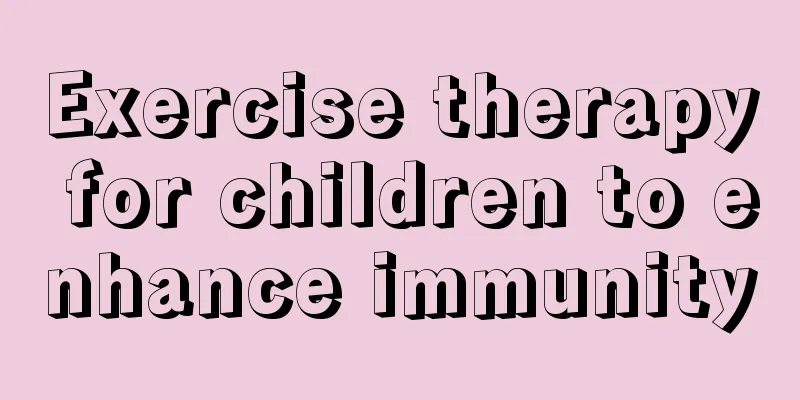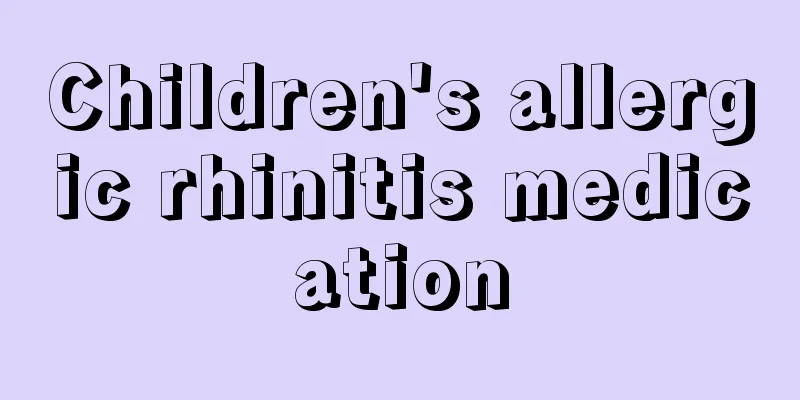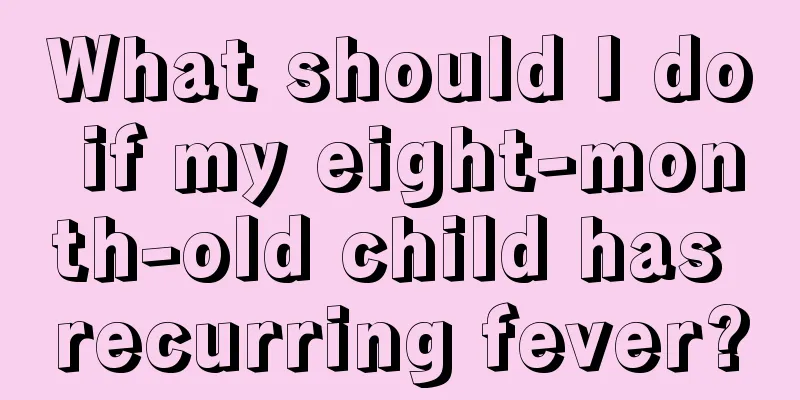What should I do if my baby is allergic to medicine?

|
If the baby is sick, parents must not give the baby medicine without authorization, because the baby's immune system is poor and various organs are still developing. Once some medicines are used incorrectly, it may cause life-threatening danger to the baby. Once the baby has an allergic reaction to these drugs, the medication should be stopped immediately and the baby should be sent to the hospital for examination and treatment as soon as possible, otherwise the baby's life may be in danger. Drug allergic reaction: It usually occurs in a small number of children with allergic constitutions. It has nothing to do with the dosage, route of administration and the pharmacological effect of the drug itself. Drugs, whether taken orally, injected, applied topically or sprayed, can cause damage to the skin, mucous membranes, and even the entire body. Drug allergic reactions are divided into immediate reactions and delayed reactions. The former occurs instantly after taking the medicine. For example, after injecting penicillin, one may immediately experience chest tightness, palpitations, shortness of breath, blue face, profuse sweating, cold hands and feet, and even a weak pulse and shock. This drug reaction is serious and if not treated in time, it can cause the death of the child. A delayed reaction is a rash that appears several days after taking the medicine and the rash types vary, including fixed drug rash, urticaria, scarlet fever-like rash, measles-like rash, etc. In severe cases, exfoliative dermatitis may occur. Immediate responders are often accompanied by systemic symptoms. Those with delayed reactions may have exfoliative dermatitis. Immediate responders are often accompanied by systemic symptoms. Those with delayed reactions may have exfoliative dermatitis. Immediate responders are often accompanied by systemic symptoms. Slow responders may only invade the skin or one organ locally, with relatively mild symptoms. If a child has an allergic reaction after taking a medication, the medication should be stopped first and desensitization treatment should be given, such as diphenhydramine, phenergan, chlorpheniramine, calcium gluconate, etc. When a systemic allergic reaction occurs, the child should lie flat, unbutton his clothes, tilt his head to one side, pay attention to changes in blood pressure, clear secretions from the mouth and nose, keep the airway open, and go to the hospital as soon as possible. |
<<: What to do if your baby refuses to take medicine
>>: What to do if it is difficult to feed medicine to your baby
Recommend
Early symptoms of autism in newborns
Many friends simply think that autism is a psycho...
What causes Down syndrome?
The cause of Down syndrome is something that many...
What are the treatments for cerebral palsy in children?
Cerebral palsy is a disease that can easily occur...
Reasons for children sweating while sleeping
Children sweating while sleeping is a problem tha...
What to do if your one-year-old baby has repeated fevers
It is a common phenomenon for babies to have a fe...
What to do if your child has trouble breathing while sleeping
It is the common wish of all parents that every c...
Can a newborn be held upright?
After a newborn is born, many aspects of its body...
Baby's eczema heals and then recurs
One of the characteristics of eczema is that it i...
Reasons for loose yellow stools in newborns
The care for newborns must be meticulous. If the ...
How many times a day is normal for a baby to poop?
For young people who become parents for the first...
White particles on baby's hands
If white particles appear on your baby's hand...
What to do if a child has an eyelid cyst
If a child develops an eyelid cyst, it must be ta...
What are the white spots on children's fingers?
In fact, this situation will occur in most people...
Why is myocardial enzyme level elevated in newborns?
For parents who have just welcomed their baby wit...
What to do if your baby has a short sleep time during the day
There are great differences in the amount of time...









